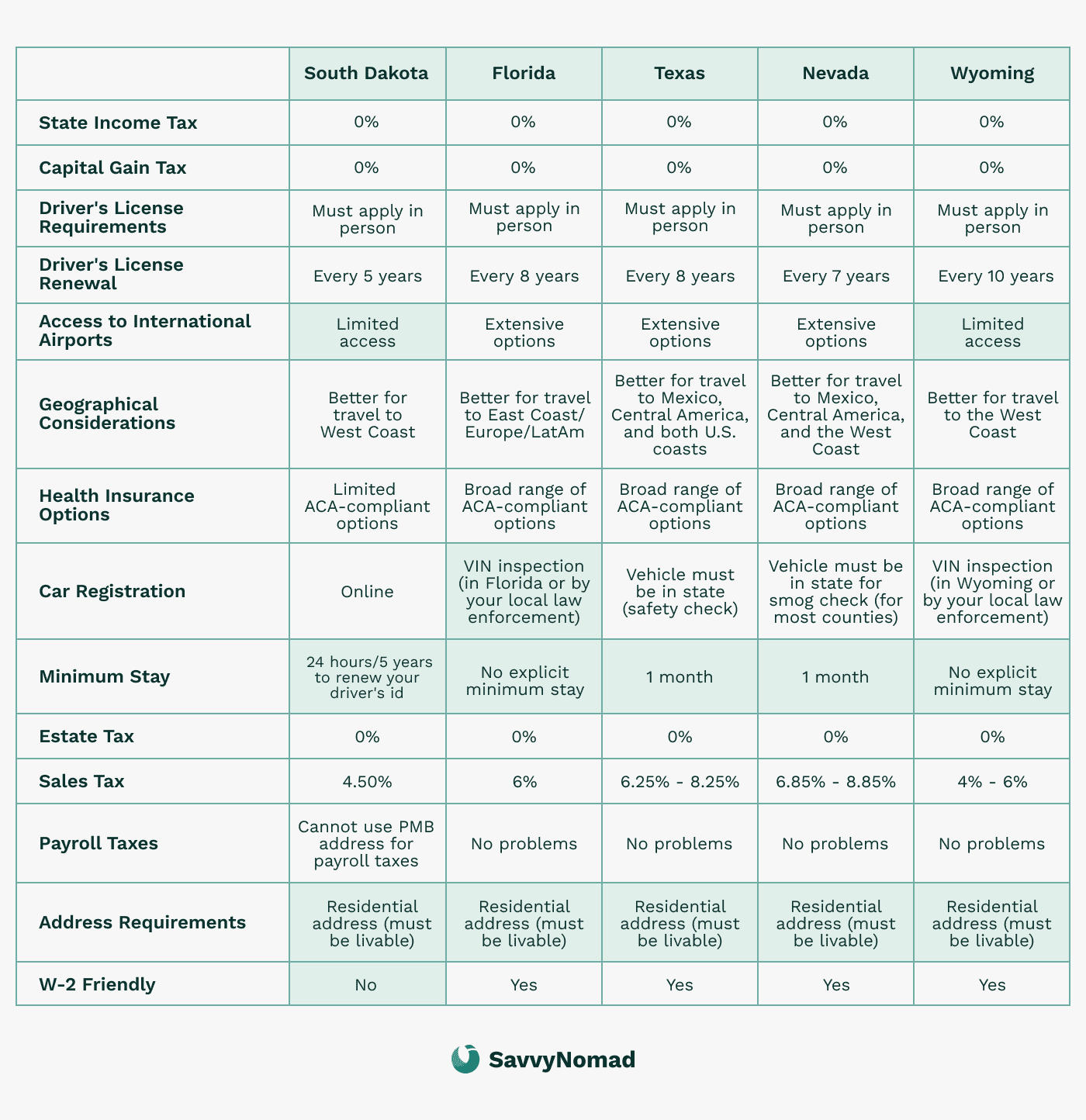Guide to U.S. expat taxes in Australia

Living in Australia as a U.S. citizen can be exciting, but it also comes with a unique set of tax responsibilities. Even though you’re halfway around the world, the U.S. still expects you to report your income each year, and you may also have tax obligations in Australia.
Navigating these dual tax responsibilities can be complex, but understanding the basics can help make the process smoother and might even save you money.
U.S. federal tax obligations for expats
As a U.S. citizen living in Australia, you’re still required to report your income to the IRS every year, even if you’re earning it abroad. The U.S. is one of the few countries that taxes based on citizenship, which means your worldwide income is reportable, no matter where you live.
Overview of worldwide income
The U.S. tax system mandates that citizens and resident aliens report all income from global sources. This includes:
- Employment Income: Salaries, wages, bonuses, and commissions earned in Australia or any other country.
- Self-Employment Income: Earnings from freelance work or business operations conducted abroad.
- Investment Income: Interest, dividends, capital gains, and rental income from both U.S. and foreign sources.
Regardless of where the income is earned or where you reside, it must be reported to the Internal Revenue Service (IRS).
Filing requirements and thresholds
The requirement to file a U.S. tax return depends on your filing status, age, and gross income. For the tax year 2024, the thresholds are as follows:
- Single Filers: Must file if gross income is at least $13,850.
- Married Filing Jointly: Must file if combined gross income is at least $27,700.
- Married Filing Separately: Must file if gross income is at least $5.
- Head of Household: Must file if gross income is at least $20,800.
These thresholds are subject to annual adjustments for inflation. It’s crucial to verify the current year’s thresholds to ensure compliance.
Key tax exclusions and credits
To alleviate the burden of double taxation, the IRS provides several provisions:
Foreign Earned Income Exclusion (FEIE)
The FEIE allows qualifying U.S. expats to exclude a certain amount of foreign-earned income from U.S. taxation. For 2023, this exclusion amount is up to $126,500.
To qualify, you must meet one of the following tests:
- Physical Presence Test: You were physically present in a foreign country for at least 330 full days during a 12-month period.
- Bona Fide Residence Test: You are a bona fide resident of a foreign country for an uninterrupted period that includes an entire tax year.
To claim the FEIE, file Form 2555 with your U.S. tax return.

Foreign Tax Credit (FTC)
If you pay Australia income tax, the FTC lets you offset U.S. taxes with Australia taxes paid, reducing or eliminating double taxation. You can claim this by filing Form 1116.

Foreign Housing Exclusion
If you incur housing expenses while living abroad, you may qualify for the Foreign Housing Exclusion. This allows you to exclude certain housing costs from your income, provided they exceed a base amount. Eligible expenses include rent, utilities (excluding telephone), and residential parking.
The exclusion is subject to limitations based on the location and the number of qualifying days. To claim this exclusion, complete Form 2555 along with your tax return.
Example: If you earn $100,000 from a job in Australia, you can use the FEIE to exclude this income from U.S. taxes. If you have additional housing expenses, you might be able to reduce your taxable income even further with the Foreign Housing Exclusion.

State tax obligations for the U.S. expats in Australia
If you’re a U.S. citizen living in Australia, understanding state tax obligations can be essential, particularly if you recently moved from a U.S. state that levies income tax. While federal tax is mandatory, state tax requirements depend on your prior state of residence and how thoroughly you’ve severed ties. Each state has its own rules on what constitutes “residency,” so some states may still consider you a resident for tax purposes even after you move abroad. Here’s what U.S. expats in Australia need to know about managing state tax obligations.
Determining state domicile
Each U.S. state has its own guidelines for determining residency, which often revolve around where your “domicile” is located. Domicile is generally defined as the place where you have your permanent home and intend to return. If you haven’t clearly ended your ties with your previous state, that state may still consider you a tax resident.

To avoid ongoing state tax obligations, it’s often necessary to formally sever ties with your previous state of residence.
Here’s a breakdown of states by tax treatment:
States with no tax on worldwide income for non-residents
These states provide favorable tax treatment for expats, as they do not impose taxes on global income if you can establish non-resident status:
- Colorado
- Connecticut
- Delaware
- Massachusetts
- Minnesota
- Missouri
- North Dakota
- Oregon
- Pennsylvania
- Virginia
- West Virginia
Expats from these states may not need to take significant steps to maintain their non-resident status once they relocate. This group of states offers considerable savings by not taxing worldwide income, making them favorable options for expats.

States that tax worldwide income but offer FEIE
These states tax worldwide income but provide some relief to expats by allowing a Foreign Earned Income Exclusion (FEIE). For the 2024 tax year, the FEIE lets expats exclude up to $126,500 of foreign-earned income from state income tax.
- Alabama
- Arizona
- Georgia
- Idaho
- Illinois
- Indiana
- Iowa
- Kansas
- Kentucky
- Maine
- Michigan
- Ohio
- Oklahoma
- Rhode Island
- South Carolina
- Utah
- Vermont
While these states tax global income, expats can reduce their tax liability with the FEIE, which allows them to exclude a significant portion of their foreign earnings.
States that tax worldwide income with no FEIE
These states tax worldwide income but do not provide a Foreign Earned Income Exclusion, resulting in higher potential tax burdens for expats, as there is no mechanism to offset foreign-earned income:
- Arkansas
- Indiana
- Kentucky
- Louisiana
- Maine
- Maryland
- Mississippi
- Montana
- Nebraska
- New Mexico
- North Carolina
- Wisconsin
Expats domiciled in these states face more significant tax liabilities on their global income due to the lack of FEIE, which makes establishing domicile elsewhere more appealing.
States with the highest tax burden for expats
Some states impose the most stringent tax policies on expats, including high income tax rates and no exclusions for foreign-earned income. If you’re domiciled in one of these states, relocating your domicile to a more tax-friendly state can lead to substantial savings.
These states have high income tax rates and tax worldwide income with no exclusions, making them the least favorable for expats in terms of tax savings.
Steps to reduce state tax obligations
If you plan to avoid state tax obligations, especially from states that tax worldwide income without providing relief, consider these steps:
- Establish domicile in a tax-friendly state: Moving your official residence to a state with no income tax, like Florida, Nevada, Texas, or South Dakota, can significantly reduce your tax burden.
- Update official documents: Cancel voter registration, update your driver’s license, and transfer financial accounts to reflect your new domicile.
- File a final tax return in your previous state: This signals the end of your tax residency and helps prevent future state tax liabilities.

Additional U.S. reporting requirements – FATCA and FBAR
As a U.S. citizen living in Australia, reporting requirements for foreign financial assets can be just as important as filing your annual tax return. If you have foreign bank accounts or substantial financial assets, you may need to file additional reports under FATCA (Foreign Account Tax Compliance Act) and FBAR (Foreign Bank Account Report). These requirements apply even if you’re a resident of Australia, and failing to comply can result in serious penalties. Here’s a guide to FATCA and FBAR for U.S. expats in Australia.
FATCA (Foreign Account Tax Compliance Act)
The Foreign Account Tax Compliance Act, or FATCA, was introduced to help the IRS prevent tax evasion by U.S. citizens using foreign accounts. FATCA requires U.S. taxpayers to report certain foreign assets to the IRS. Here’s what you need to know about FATCA and its requirements:
Who needs to file under FATCA?
If you have foreign assets that exceed certain thresholds, you’ll need to report them on Form 8938, which is submitted along with your regular tax return. For single filers living abroad, the threshold is $200,000 on the last day of the tax year or $300,000 at any point during the year. For married couples filing jointly, the thresholds are doubled.
What needs to be reported?
Reportable assets under FATCA include foreign bank accounts, investment accounts, foreign stocks, and even certain pensions. Generally, any financial assets held outside the U.S. should be reviewed to determine if they need to be reported.
How to file FATCA (form 8938?
If you meet the reporting threshold, you’ll complete Form 8938 and submit it with your regular tax return (Form 1040). The form requires details like account numbers, maximum account values, and the financial institution’s location.

FBAR (Foreign Bank Account Report)
The Foreign Bank Account Report (FBAR) is another requirement for U.S. citizens with overseas accounts. While FATCA applies based on the value of financial assets, the FBAR requirement is specifically tied to foreign bank accounts. Here’s a breakdown:
Who needs to file FBAR?
If the combined balance of all your foreign bank accounts exceeds $10,000 at any point during the year, you’re required to file an FBAR. This rule applies even if you just temporarily crossed the $10,000 threshold. For instance, if you have two accounts—one with $5,000 and another with $6,000—you would need to file an FBAR, as the combined balance is over $10,000.
How to file the FBAR (fincen form 114)?
The FBAR is filed separately from your tax return and is submitted online through the Financial Crimes Enforcement Network (FinCEN). The form, FinCEN Form 114, requires you to report details about each foreign account, including the bank name, account number, and maximum balance during the year.
Important deadlines and penalties
The FBAR filing deadline is April 15, but there is an automatic extension until October 15 for those who miss the initial deadline. Be mindful of FBAR filing, as the penalties for not reporting eligible accounts can be severe, with fines starting at $10,000 for each unreported account.

Understanding the difference between FATCA and FBAR
While FATCA and FBAR both aim to provide the IRS with information about foreign financial accounts, they have distinct differences:
- Different thresholds: FATCA requires reporting if your foreign assets exceed $200,000 as a single filer, while FBAR applies if the total balance in all foreign accounts exceeds $10,000.
- Different filing locations: FATCA reporting (Form 8938) is filed with your federal tax return, whereas the FBAR is filed separately through FinCEN.
- Types of assets reported: FATCA requires reporting a broader range of foreign financial assets, while FBAR focuses only on foreign bank accounts.
Why do FATCA and FBAR matter for U.S. expats?
Failing to file FATCA and FBAR can result in significant penalties, so it’s essential to understand whether you’re required to report these assets. While it may seem like an extra step, filing these forms can help ensure compliance with IRS regulations and avoid unnecessary fines. If you have foreign bank accounts or financial assets, it’s a good idea to consult a tax professional to ensure you’re meeting all reporting requirements.
U.S.-Australia tax treaty
The U.S.-Australia Tax Treaty is designed to help U.S. expats avoid double taxation on income earned while living in Australia. This treaty specifies which country has the primary right to tax different types of income, provides reduced tax rates for certain income sources, and clarifies how social security contributions are handled. Here’s how the tax treaty can benefit U.S. expats in Australia.
Purpose of the U.S.-Australia tax treaty
The main goals of the U.S.-Australia Tax Treaty are to:
- Prevent Double Taxation: Ensure that U.S. citizens living in Australia aren’t taxed twice on the same income.
- Avoid Fiscal Evasion: Set guidelines to prevent tax evasion and ensure compliance in both countries.
- Clarify Tax Jurisdiction: Define which country has the right to tax various types of income, making it easier for expats to understand their obligations.
For U.S. expats, the treaty helps lower the risk of double taxation by allowing foreign tax credits, setting reduced tax rates on specific income types, and establishing residency and income allocation rules.
Key treaty provisions
The treaty includes specific provisions for different types of income. Here’s a breakdown of how certain types of income are treated under the U.S.-Australia Tax Treaty:
- Employment Income: Income from employment is generally taxed in the country where the work is performed. For example, if you work and live in Australia, Australia has the primary right to tax your salary. However, you still need to report this income on your U.S. tax return, though you may be eligible to use the Foreign Earned Income Exclusion (FEIE) or the Foreign Tax Credit (FTC) to reduce your U.S. tax liability.
- Dividend and Interest Income:
- Dividends: The tax treaty allows for a reduced withholding tax rate on dividends. Typically, the source country’s withholding tax on dividends paid to a resident of the other country is limited to 15%.
- Interest: Interest income is generally taxed only in the country where the recipient resides. However, there are exceptions for interest from certain government bonds or financial products, which may be exempt.
- Capital Gains: The tax treaty typically allows capital gains to be taxed only in the country where the person resides. So if you’re a tax resident of Australia, capital gains on investments are usually taxed by Australia, though U.S. capital gains tax rules may still apply to sales of U.S. property or other specific assets.
Social Security Agreement (Totalization Agreement)
In addition to the tax treaty, the U.S.-Australia Totalization Agreement coordinates social security contributions for U.S. expats in Australia. This agreement prevents U.S. expats from having to pay into both the U.S. and Australian social security systems, allowing for more efficient contributions and ensuring eligibility for benefits.
- U.S.-Based Employment: If you’re working temporarily in Australia for a U.S.-based employer, you may remain covered under U.S. Social Security for up to five years, meaning you’re exempt from Australian superannuation contributions during this period.
- Australian-Based Employment: If you work for an Australian employer, you’ll contribute to Australia’s superannuation system, which counts toward retirement benefits in Australia. The Totalization Agreement also allows you to combine credits from both systems to qualify for benefits if you’re short on credits in either system.
Combining Credits: If you’ve worked in both the U.S. and Australia but don’t meet the minimum requirements to qualify for Social Security benefits in one of these countries, you can combine credits from both systems. This is particularly helpful for those who don’t have enough years of contributions in one country alone.
Example: If you worked for six years in the U.S. and then moved to Australia and worked for another six years, your credits could be combined to meet the requirements for U.S. Social Security benefits.
Claiming treaty benefits
To take advantage of the tax treaty, U.S. expats may need to file specific forms with the IRS:
- Form 1116 (Foreign Tax Credit): Use this form to claim credits for taxes paid to Australia on income also taxable by the U.S., helping to avoid double taxation.
- Form 8833 (Treaty-Based Return Position Disclosure): This form is required if you’re claiming treaty benefits to reduce or eliminate your U.S. tax liability on income earned in Australia.
Residency and Tie-Breaker Rules
The treaty also includes “tie-breaker” rules to help determine tax residency if both countries consider you a resident. Here’s how the treaty resolves conflicts in residency status:
- Permanent Home: Priority is given to the country where you maintain a permanent home.
- Center of Vital Interests: If you have permanent homes in both countries, the country where you have stronger personal and economic ties (center of vital interests) takes precedence.
- Habitual Abode: If neither of the above determines residency, the country where you habitually reside is considered your primary tax residence.
These tie-breaker rules help avoid conflicts over tax residency and ensure that your tax obligations are clear.
Australia tax obligations for U.S. expats
If you’re a U.S. citizen living and working in Australia, you’ll likely have tax responsibilities in both countries. Australia’s tax system operates independently of the U.S., so if you’re considered a tax resident of Australia, you’ll need to file a tax return with the Australian Taxation Office (ATO) and pay taxes on your worldwide income. Here’s what you need to know about tax residency, income tax rates, and the types of income taxed in Australia.
Determining tax residency in Australia
Australia’s tax obligations depend on your residency status. Even if you’re a U.S. citizen, you could be considered an Australian tax resident if you meet specific criteria:
- Domicile and Intent: If you have a “permanent place of abode” in Australia or show intent to live there long-term (such as having a home, family ties, or significant connections), you may also qualify as a tax resident, even without meeting the 183-day rule.
- 183-Day Rule: If you spend 183 days or more in Australia within a tax year (July 1 - June 30), you’re generally considered a tax resident.
As a tax resident of Australia, you’re responsible for reporting and paying taxes on income from all sources, both in Australia and abroad.
Australian income tax rates
Australia has a progressive income tax system, which means that the more you earn, the higher your tax rate. Here are the income tax brackets for Australian residents for the 2024 tax year:
- Up to AUD 18,200: 0% (tax-free threshold)
- AUD 18,201 to AUD 45,000: 19%
- AUD 45,001 to AUD 120,000: 32.5%
- AUD 120,001 to AUD 180,000: 37%
- Over AUD 180,000: 45%
Example: If you earn AUD 100,000 in Australia, you’ll pay 0% on the first AUD 18,200, 19% on the next AUD 26,800 (the portion from AUD 18,201 to AUD 45,000), and 32.5% on the remaining AUD 55,000 (the portion from AUD 45,001 to AUD 100,000).
Medicare Levy and Additional Surcharges
In addition to income tax, Australia has a Medicare levy of 2% of your taxable income, which funds the country’s public healthcare system. Higher-income earners who don’t have private health insurance may also be subject to an additional Medicare levy surcharge of up to 1.5%.
- Medicare Levy: 2% of your taxable income, required of most Australian tax residents.
- Medicare Levy Surcharge: Applies to individuals earning above certain income thresholds who don’t have private health insurance. The surcharge ranges from 1% to 1.5% of income, depending on earnings.
Example: If your taxable income in Australia is AUD 100,000, you would pay an additional AUD 2,000 for the Medicare levy. If you don’t have private health insurance and your income exceeds the Medicare levy surcharge threshold, you may need to pay an additional surcharge.
Types of income taxed in Australia
As an Australian tax resident, you’re taxed on different types of income, including:
- Rental Income: If you rent out property, either in Australia or abroad, the income is also subject to Australian tax, though you may be able to deduct related expenses, such as maintenance and property management costs.
- Investment Income: Interest, dividends, and capital gains from investments are taxable in Australia. Capital gains on assets held for more than 12 months may qualify for a 50% discount, which means only half of the gain is subject to tax.
- Self-Employment Income: If you’re self-employed, your income is subject to the same tax rates, with deductions available for eligible business expenses.
- Employment Income: Wages and salaries earned in Australia are taxed according to the progressive tax rates listed above.
Example: If you’re earning dividends from U.S.-based investments, Australia will tax this income as part of your worldwide income. However, thanks to the U.S.-Australia tax treaty, you can claim foreign tax credits to avoid being taxed twice.
Australian tax filing process for U.S. expats
As a U.S. expat living in Australia, you may be required to file a tax return with the Australian Taxation Office (ATO) in addition to your U.S. tax return. Understanding Australia’s tax year, filing requirements, and potential deductions can help you stay compliant and may even reduce your overall tax liability. Here’s a guide to the Australian tax filing process for U.S. expats.
Filing requirements and deadlines
Australia’s tax year runs from July 1 to June 30 of the following year. If you are an Australian tax resident, you’ll generally need to file a tax return to report income earned both within and outside of Australia. Filing requirements vary depending on your residency status and income sources:
- Employment Income: If you have employment income in Australia, your employer will typically withhold taxes from your paycheck, but you still need to file an annual return to account for all income sources and claim any eligible deductions.
- Self-Employment and Foreign Income: If you’re self-employed, or if you have income from non-employment sources (like foreign investments or rental properties), you’re required to report it on your Australian tax return.
- Married Couples: Australia requires each individual to file their own tax return, so married couples do not file jointly as they do in the U.S.
Deadlines:
- Standard Filing Deadline: October 31 of the following year. For example, the deadline for the 2023-2024 tax year is October 31, 2024.
- Extended Deadline with a Registered Tax Agent: If you work with a registered tax agent (similar to a CPA in the U.S.), your filing deadline may be extended to May 15 of the following year.
If you miss the deadline, you may face late filing penalties, so it’s important to plan ahead, especially if you’re filing both U.S. and Australian tax returns.
Documents needed for filing
Gathering the right documents can make the filing process smoother. Here are some key documents you’ll need for your Australian tax return:
- Income Statements (Payment Summaries): Your employer will issue this summary, showing your total earnings and tax withheld for the year.
- Bank Statements and Investment Records: Documentation of interest, dividends, and other investment income.
- Self-Employment Records: Income and expense records if you’re self-employed, including receipts for any business-related expenses.
- Foreign Income Records: Documentation of any income earned outside Australia, including rental income, dividends, and interest from non-Australian sources.
- Proof of Deductions: Keep records for any expenses you’re claiming as deductions, such as work-related expenses, healthcare costs, or charitable donations.
Keeping these records organized throughout the year can simplify tax time and help you claim all eligible deductions.
How to file your Australian tax return
There are a few different ways you can file your Australian tax return, depending on your comfort level and tax situation:
- Use MyTax on the ATO Website: MyTax is the ATO’s online tax filing system, available for free through your myGov account. It’s user-friendly and pre-populates some information, such as employment income and bank interest, making it an easy option for straightforward tax situations.
- Hire a Registered Tax Agent: If your financial situation is complex or if you have foreign income, a registered tax agent can provide personalized guidance and help you maximize your deductions. A tax agent can also represent you in case of any questions or issues with the ATO.
- Use Tax Software: Some tax software programs in Australia offer user-friendly options for individuals with standard tax filing needs. However, software may not fully cover the needs of expats with foreign income or investments.
Tax deductions and credits for U.S. expats in Australia
Australia provides several tax deductions and credits that can help reduce your tax liability. Here are some common ones you might be able to claim:
- Work-Related Deductions: You can deduct work-related expenses, such as the cost of tools, equipment, travel, and training. You may also be able to deduct a portion of home office expenses if you work from home.
- Medical and Healthcare Costs: While most healthcare costs in Australia are covered through Medicare, certain out-of-pocket medical expenses can be deductible.
- Charitable Donations: Donations to registered Australian charities are tax-deductible. Keep receipts as proof of your contributions.
- Self-Education Expenses: If you take courses directly related to your current job, you may be able to deduct tuition, materials, and other education-related costs.
- Rental Property Expenses: If you own rental property, you can deduct expenses related to maintenance, property management, and loan interest on the property.
Claiming these deductions can help lower your taxable income and may result in a tax refund if you’ve overpaid through payroll withholdings.










